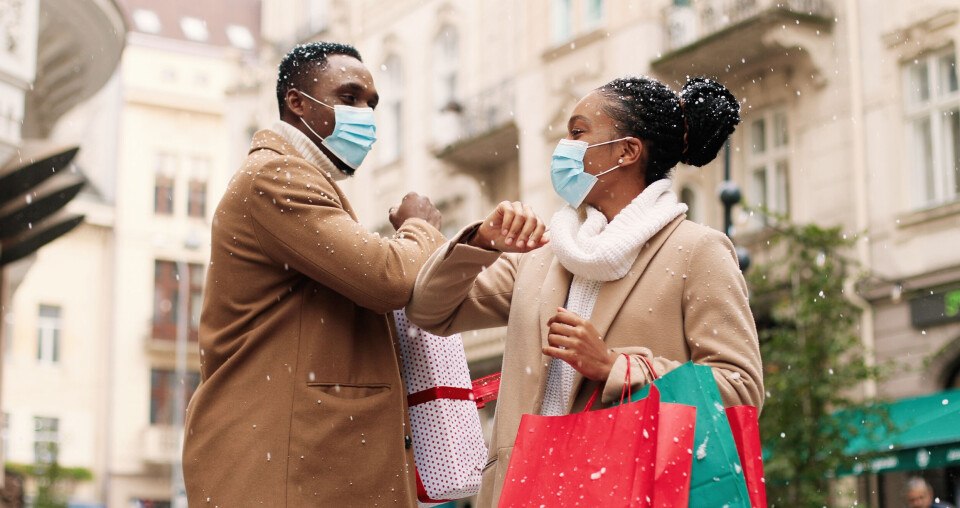-
Britons are the largest foreign community of second-home owners in Nouvelle Aquitaine
See which other departments in the region are popular with British nationals
-
Travellers risk extra costs under new Eurotunnel ticket rule
Some fare options are less flexible and less forgiving of lateness
-
May will be difficult month for train travel in France, warns minister
Two major train unions are threatening to strike and are ‘not willing to negotiate’, he says
Covid France: 47,000 new cases, what is expected in next few weeks?
Leading epidemiologist Professor Arnaud Fontanet suggests people try to cut socialising by ‘10-20%’ as infection rate rises above 300 per 100,000

The number of daily Covid cases recorded in France rose to 47,177 yesterday (November 30). One of the country’s leading epidemiologists is advising that people reduce their socialising by “10-20%.”
Daily positive Covid cases have risen by 15,000 in a week with 32,591 infections recorded on Wednesday, November 24, for the previous day according to figures from Santé publique France.
France’s infection rate is now 307 cases per 100,000 people, up from around 200 last week.
The infection rate of 15 departments is now above 400 cases per 100,000 people, with Ardèche recording 598 cases per 100,000 and Hautes-Pyrénées reporting 488 per 100,000.
Case numbers are particularly high among children, with a rate of 654 per 100,000 among six to 10-year-olds and 387 among 11 to 14-year-olds.
Read more:Covid France: Infection rate surges among children aged six to ten
This steep rise is concerning to Health Minister Olivier Véran, who said during a press conference yesterday that: “The situation is getting worse. [...] The average number of infections each day has gone past 30,000, and could rise above the peak of the third wave at the end of the week.”
On March 29, at the peak of the third wave when 40,000-50,000 cases were being reported each day, 28,322 people were hospitalised and 4,974 were in intensive care with Covid. By April 8, there were 7,019 people in intensive care.
However, as of yesterday, despite the 47,000 cases there were less people being treated in hospital (around 10,000 people) and 1,824 in intensive care according to government-approved site CovidTracker
Health professionals are nonetheless concerned that the recent surge in case numbers could overwhelm hospitals, especially as the peak is not expected to be reached until January.
‘We can definitely flatten the curve’
Institut Pasteur epidemiologist Professor Arnaud Fontanet predicted during an interview on France Inter that the rate of hospitalisations could approach “that of the second wave in November 2020, that is, 2,500 admissions per day.”
Prof Fontanet also reminded listeners that they should not “mistake” the new Omicron variant for the real “enemy”: Delta.
“For the moment our enemy is the Delta variant, which is responsible for this powerful fifth wave in France,” he said, suggesting that to reduce the risk of catching the virus, people should “make the effort” to reduce their social contact by “10 to 20%,” observing social distancing measures and airing indoor spaces as much as possible.
He added that on Christmas Day, people should consider limiting their party to “six, rather than 12 people,” but did not insist on this.
“We are not saying that we should return to a curfew or a lockdown,” he said.
“We can definitely flatten the curve and prevent the peak of the fifth wave,” he added. “It is not like in October or November 2020 when 90% of the population was at risk of getting infected.
“We are now in a situation where the risk is much more limited.”
Prof Fontanet also said that: “The tools deployed against the Delta variant will also be effective against the new variant. Omicron has appeared in a very calm epidemiological context, very far from the previous wave which occurred among a population which was largely unvaccinated.
“We do not know if it will overtake Delta, which is circulating among a population which is well immunised, whether through infection or through vaccination.”
Health Minister Olivier Véran has also stressed the importance of reinforcing social distancing and hygiene measures in order to curb the spread of Covid, and especially the Omicron variant.
In an interview with Sud Ouest Mr Véran said that: “Everything is being put in place to stall the spread of this variant which is currently circulating around the world, with effective self-isolation measures and reinforced contact tracing.
“These methods are exactly the same as for the Delta variant, which is the one with which we are preoccupied today in France, since it accounts for the majority of cases. Barrier gestures must absolutely be respected and there is no question that [people should get] vaccinated.”
The Health Minister added that, apart from the case detected in Réunion, the 10 or so suspected cases in metropolitan France are still yet to be confirmed.
Read more:Omicron variant case confirmed in France - on Réunion island
Read more:What is known about the eight suspected Omicron cases in France
“In the coming hours we will know more, but we must accept that other cases will present themselves,” as time passes.
When asked if people in France should expect another Christmas under restrictions, Mr Véran said: “The dynamic of this epidemic is not good: the figures reflect a rapidly rising infection rate, which will soon translate into an increase in hospitalisations.
“But our destiny is still in our hands. [We can] slow down the epidemic by limit as much as possible the serious cases which need hospital treatment.
“This is why we insist on vaccination [...] on barrier gestures and indeed on mask-wearing.”
Related articles
Masks, tests, boosters: new Covid rules to fight fifth wave in France
Coronavirus: Daily updates on the situation in France
























